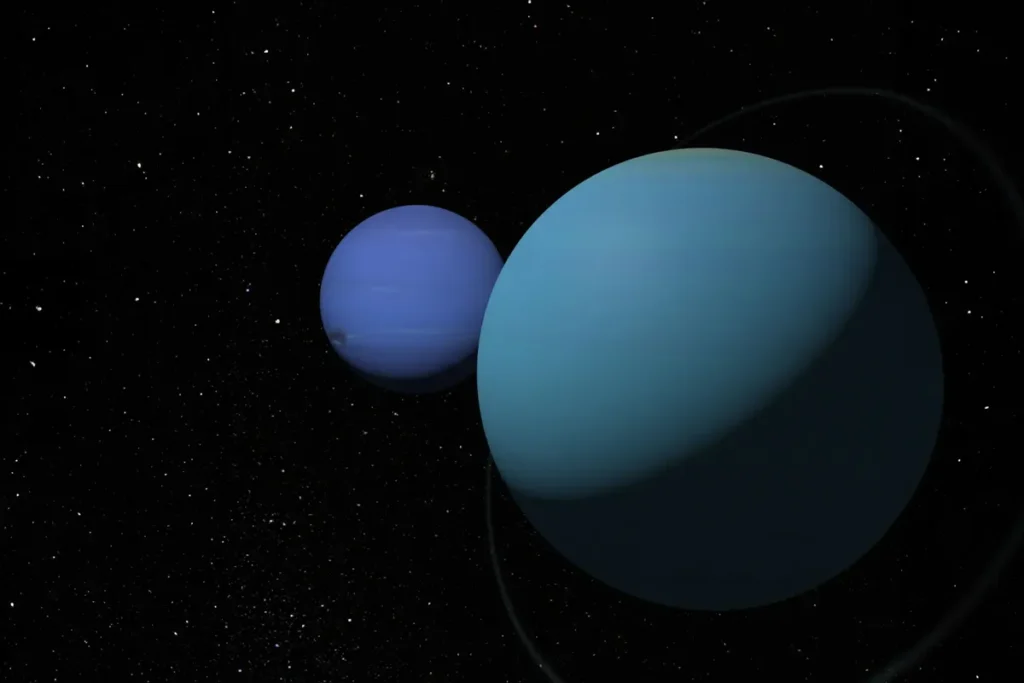Unveiling the Discovery of Three New Moons Orbiting Uranus and Neptune
In the vast expanse of our solar system, recent astronomical revelations have captured the attention of space enthusiasts and government exam aspirants alike. Three previously undiscovered moons have been detected in orbit around the outer giants, Uranus and Neptune. This groundbreaking discovery holds significance for candidates preparing for various government exams, including those aspiring to become teachers, police officers, banking professionals, railway employees, and those eyeing defense and civil service positions like PSCS to IAS.

Why this News is Important
In a pivotal moment for astronomy, scientists have identified three new moons circling Uranus and Neptune. This discovery opens new avenues for research and enhances our understanding of the outer reaches of our solar system.
Historical Context
To comprehend the magnitude of this revelation, a glimpse into the historical context is imperative. The exploration of Uranus and Neptune has been ongoing since their discovery in the 18th century. This recent finding builds upon decades of astronomical research and technological advancements.
5 Key Takeaways from “Unveiling Three New Moons Orbiting Uranus and Neptune”
| Serial Number | Key Takeaway |
|---|---|
| 1 | Three new moons discovered orbiting Uranus and Neptune. |
| 2 | Significance for government exam aspirants in diverse fields. |
| 3 | Advancements in technology contributing to astronomical breakthroughs. |
| 4 | Historical context of Uranus and Neptune exploration. |
| 5 | Potential impact on future space missions and research. |
Important FAQs for Students from this News
Q: How were the new moons discovered around Uranus and Neptune?
A: The new moons were discovered through advanced telescopic observations.
Q: How many new moons were discovered around Uranus and Neptune in total?
A: Three new moons were discovered, two around Uranus and one around Neptune.
Q: What significance do these discoveries hold for students preparing for government exams?
A: These discoveries are not directly related to exam topics; however, they showcase advancements in astronomical research, which might be included in general awareness sections.
Q: Can these new moons be observed with the naked eye?
A: No, these moons are not visible to the naked eye and require powerful telescopes for observation.
Q: Are there any potential implications of these discoveries on space exploration?
A: While not directly impacting space exploration, such findings contribute to our understanding of the solar system’s dynamics.
Some Important Current Affairs Links

















